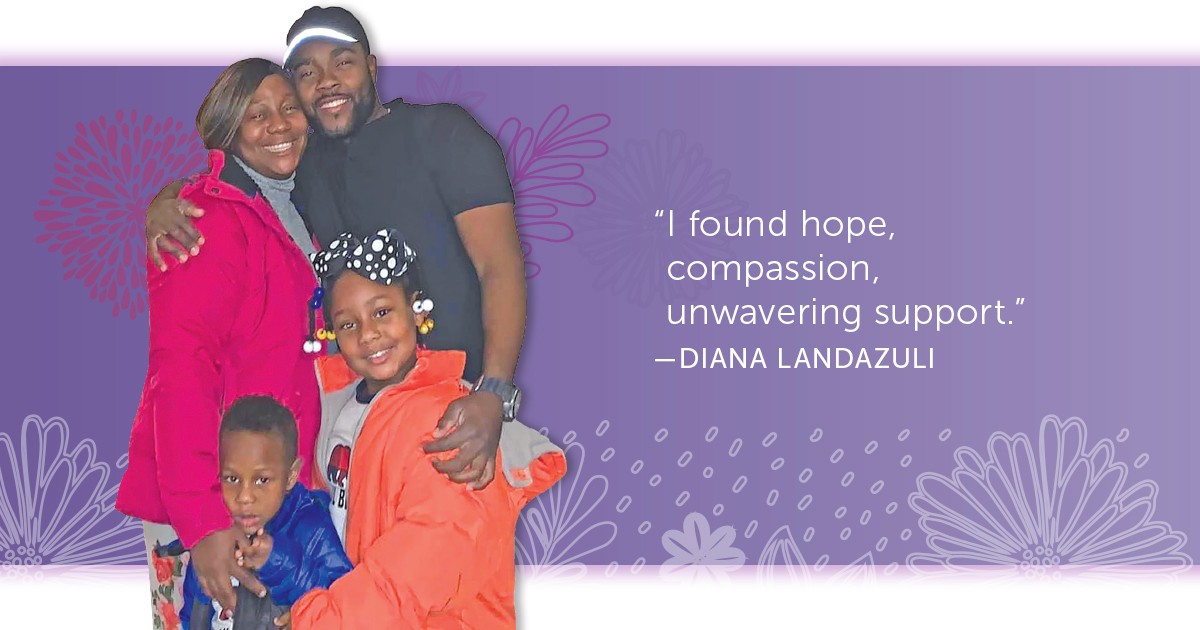A few years ago, I came across a post about Jesus and loving others from a friend I follow on Instagram. It resonated with me, so I “liked” the picture. A few days later, I received a text message from a good friend expressing concern that I had “liked” this post. He believed it was a biblically contradictory message. I saw his point. I was also frustrated, even a little hurt, that he so quickly assumed I was “aligning myself with untrue theology” simply by favouring a post, from another friend I respect and care for, that I felt spoke truthfully to Christ’s loving character.
Do you ever feel like Christianity has splintered into two distinct factions? It seems as if there are two categories—and I admit, this is a massive oversimplification. On one side, there are “compassionate” Christians, especially concerned with social justice, love and wanting to “err on the side of grace” rather than drawing theological boundaries. On the other side, we have those Christians who strongly believe that adhering to the authority of Scripture in no way lessens their compassion or ability to love and is an essential part of following Jesus. One challenges the other to stop being so rigid and “pharisaical,” while the other is accused of being swayed by culture. One side fears the watering down of biblical authority, while the other fears making the Bible an idol and prioritizing judgment over love.
Is it possible we are approaching this tension wrong? Is it possible there is another way to maintain truth, yet be known for our compassion, grace and tireless pursuit of loving all people? I wonder if we dangerously resemble a culture of dogmatic disagreement, and increasingly fail to know what a truth bathed in love looks like—something Christ modelled throughout Scripture.
The Doom Spiral
In May 2022, German American political scientist Yascha Mounk published an article called “The Doom Spiral of Pernicious Polarization” in The Atlantic. He wrote, “Although I’ve seen animosity between left and right in other nations, their hatred never felt so personal or intense as in the U.S.” A Eurasia group report from 2023 says “Canada is showing signs of the same political contagion and polarization that has afflicted American politics.”
Mounk queries whether citizens who have such hostile views of opponents are willing to act in ways that put democracy itself at risk. Polarization “makes good-faith efforts to tackle social problems such as public-health crises harder and bad-faith efforts to turn them into political gain easier.” In other words, it makes us assume the worst when people try to do things differently and makes it easier to grab a hold of language that “strokes” our dislike for opposing views.
Later, Mounk says that when this level of polarization occurs, people don’t just yell at each other, “they withdraw from all social co-operation, and their animosity grows vengeful and deadly.” Polarization is a powerful force upending much of the political social landscape in North America currently.
What else happens when society becomes more polarized? In an article published in Greater Good magazine, Zaid Jilani and Jeremy Adam Smith suggest that there are several consequences that go well beyond the political sphere:
- Our communities become more segregated. We live closer to those we agree with and demonize people with opposing views. Our compassion toward the other side is increasingly curtailed.
- The culture around us becomes more antagonistic. Rather than discussing ideas and arguments, we discredit and tear down the character and personhood of those across ideological lines.
- We “judge and loathe” members of other political parties. We consider them morally and intellectually inferior to ourselves.
- Multiple research studies show that we are less likely to help each other. Conversely, contact across cultural, social and political factions increases generosity and gratitude.
- We feel more pressure to conform within our own groups, which in turn makes it far less likely that anyone will challenge dominant ideas characterizing that in-group. We feel we must “think and act in ways that are consistent with important group identities.” This hurts our ability to question and discover new ideas, or properly affirm old ideas that are still true today.
There are other consequences, but I think these are the most relevant when we consider our churches and the broader body of Christ. In the next section, I outline how the same forces behind societal polarization are seeping in and eroding Christian unity, leaving us with a far less effective approach to spreading truth and life to those inside and outside of our churches.
Beyond Tribalism
The propelling force behind polarization is tribalism. Jilani and Smith describe tribalism as “clustering ourselves in groups that compete against each other in a zero-sum game where negotiation and compromise are perceived as betrayal.” This definition hit me like a ton of bricks. When my friend reached out to me about the Instagram post, I was confused, feeling an uncharacteristic absence of warmth from him, even an angry panic. Perhaps he felt I had betrayed our long-held—if implicit—tradition of agreeing on all things theological. What was I thinking, associating myself with this other person, who readily and actively positions themself on a different end of that theological debate? It didn’t matter that there was no explicit falsehood in the post—his objection was more about the person and type of writing he publishes.
If, just for a moment, we can suspend how “right” we believe our position is on any given Christian issue, we can observe how division in the church looks strikingly like division in the rest of society. We often make decisions about who to work and associate with based on their theological leaning on two or three specific issues. We debate those issues on social media, the same way political supporters do on the left and the right. We are harsh, sometimes condescending, and utterly convinced of our stance on—everything.
I recognize we cannot compare political disagreement with theological disagreement. So, if I can reiterate what I am attempting to unpack, it’s this: I am not saying there is no “right” theology or that the truth won’t offend some people or groups. I acknowledge that the issues are huge. I believe there are objective, biblical truths that will continue to grow more unpopular among the younger generation, as they seem in contradiction to many cultural standards today. What I am saying is that the way we approach doctrinal difference in the church looks a whole lot like how the rest of the world approaches differing viewpoints. Is it possible that the enemy of our souls is having a heyday with our obsession over defending our positions? It would be easy if one “side” was hateful and unspiritual. If we’re honest, we all know of Christians with different views than our own who are kind, compassionate, well-read and sincere.
Orthodoxy and Modernism
In The Great Omission, Christian scholar and philosopher Dallas Willard wrote: “The overshadowing event of the past two centuries of Christian life has been the struggle between orthodoxy and modernism. In this struggle, the primary issue has, as a matter of fact, not been discipleship to Christ and a transformation of soul that expresses itself in pervasive, routine obedience to his ‘all that I have commanded you.’ Instead, both sides of the controversy have focused almost entirely upon what is to be explicitly asserted or rejected as essential Christian doctrine” (emphasis mine).
He goes on to write, “In the process of battles over views of Christ the Saviour, Christ the Teacher was lost on all sides” (emphasis mine). I came across this quote a while ago, and I have reread it dozens of times since then. This quote says nothing to diminish the importance of truth or love. What it does say is that we are becoming far less attuned to Christ the Teacher, and infusing him in what we are learning and repeating to those around us.
Willard also writes: “This has now produced generations of professing Christians who, as a whole, do not differ in character, but only in ritual, from their non-professing neighbours” (emphasis mine). We, like the world, have succumbed to tribalism, to polarization, to demonizing the other, and to segregating ourselves in ideological and theological communities. We have stopped learning from each other in gentle ways; in fact, we have stopped believing we can learn from “others over there.”
Perhaps that is not your experience. If so, that’s great. I know it is the experience of many Christians, often those who are caught in the middle—unsure what they themselves think but afraid to question what is loudly proclaimed by the group.
A Renovation of the Heart
So, where do we go from here? It seems like I often land in the same place in my articles, and I hope that is for good reason. I believe the solution to this problem is humbly approaching God about a complete renovation of our inner lives, an infusing of his Spirit, a disciplining of our minds and a willingness to surrender to his ultimate authority. Power, without Christ’s character, is how we end up with what Willard called “modern day Samsons and Sauls.” Saul was jealous, insecure and used his power to get away from those feelings, rather than tethering himself to God and his commands. I fear becoming the kind of Christian who has stopped listening quietly, silently and patiently for God’s voice.
I believe the Bible is accessible and does not require a theology degree or scholarly interpretation to understand. If we read it faithfully (not just ritually), daily inviting God to speak through his Word, he will speak. I also believe that crossing theological lines to hear and listen to other Christ-followers is not the equivalent of compromising truth. If anything, I think we are lying to ourselves about being truth seekers if we never leave room for others to challenge and share from their experiences (and we listen, not debate). I believe wholeheartedly that Christ the Teacher sees the genuine desire in the hearts of many to really know what he is saying about our lives and our culture today. Surely there is a way for all of us to follow Jesus, bring people to him and embrace the mystery of how he works, despite our differences.
Will Christians continue to mirror culture, becoming increasingly polarized and impassioned in their disagreements, or will we become a soothing respite for anxious and weary seekers?
Rebekah McNeilly is the social media and resource co-ordinator for women’s ministries in the Canada and Bermuda Territory. She is a PhD candidate at the University of Alberta.
Illustration: Oleg/stock.Adobe.com










How do I “like” this?! Thanks for your hard work on this Rebekah!